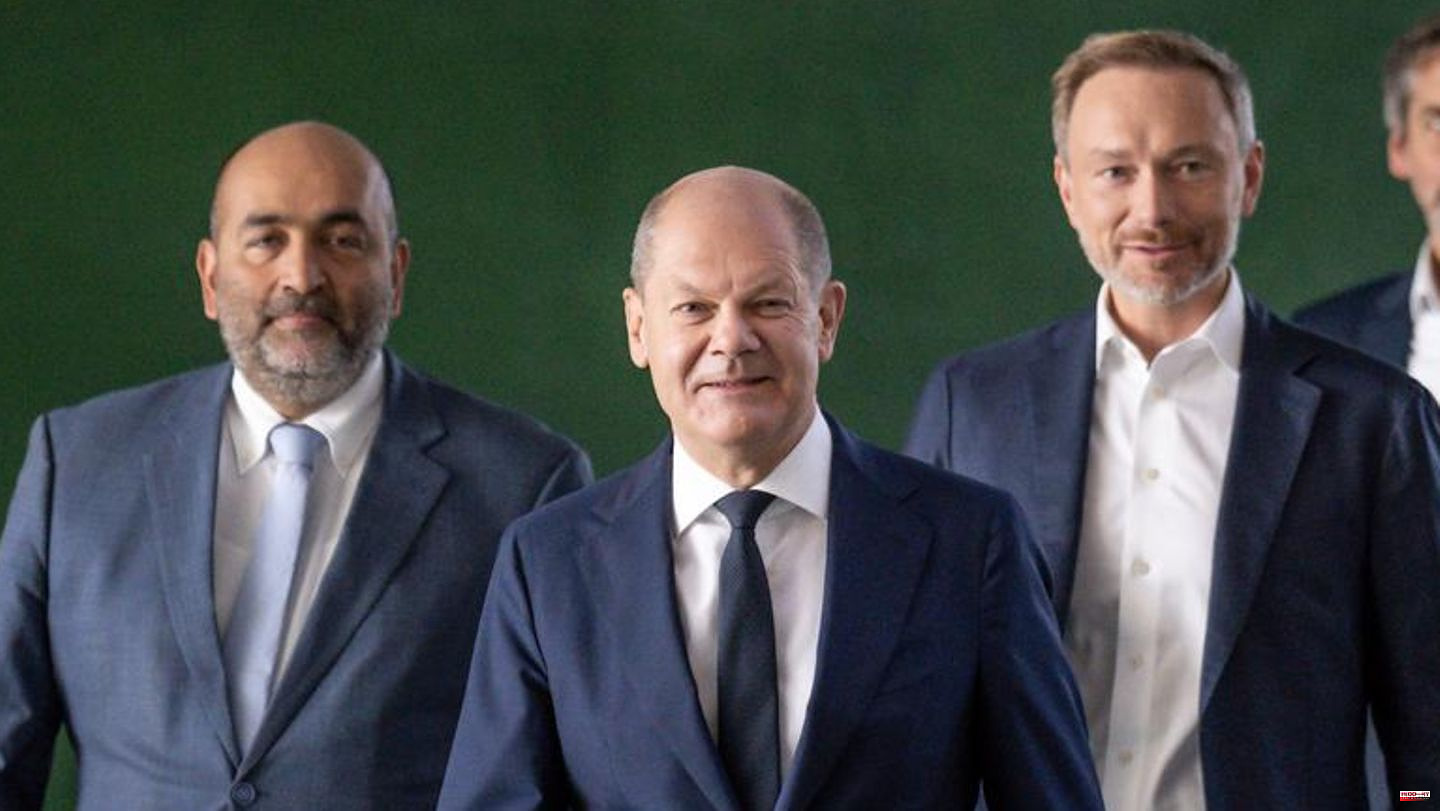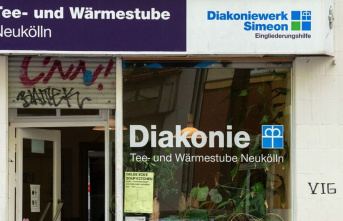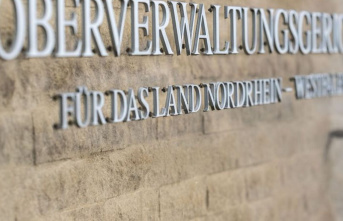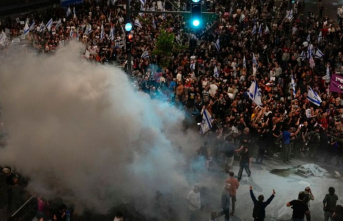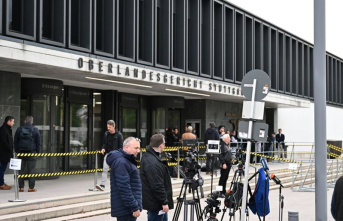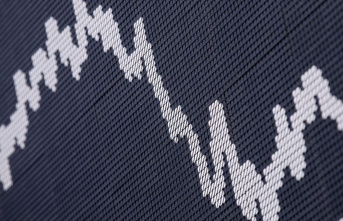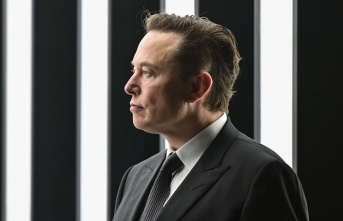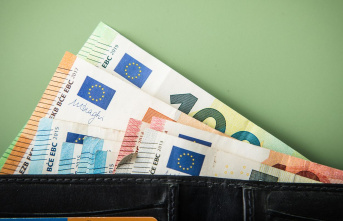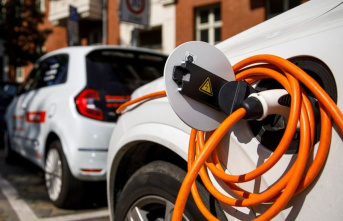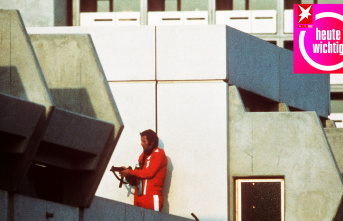An electricity price brake, a heating cost subsidy for housing benefit recipients, a cheap public transport ticket valid nationwide and one-off payments for pensioners and students: The government of the SPD, Greens and FDP is reacting to the massive increase in energy and living costs with a third relief package worth 65 billion euros. It is therefore more than twice as large as the first two packages with their combined total of around 30 billion euros.
"Berliner Zeitung": "There is no doubt that a total volume of 65 billion euros is a considerable sum, or to put it in the words of Federal Chancellor Olaf Scholz: That is 'massive', a lot of money is 'moved'. The traffic light plans one-off payments for pensioners and Students and a heating subsidy for those entitled to housing benefit. She wants a successor to the 9-euro ticket, standard rates for the needy are to increase after the introduction of citizen benefit at the beginning of next year. These are just some of the projects that will be of help to many people in the country The traffic light coalition succeeded this time in presenting a broad-based paper. However, the whole thing has one shortcoming: the financing. In fact, the federal government only contributes around half of the money with 32 billion euros. A supplementary budget is not planned, the debt brake should be adhered to in the coming year."
"Neue Osnabrücker Zeitung": "The package offers some good approaches. Pensioners and students are now being given a one-time subsidy of 300 or 200 euros, respectively, after they got nothing with the previous packages. Hartz IV becomes citizen money and at 500 euros increased, the circle of housing benefit recipients expanded and a kind of surplus tax on electricity introduced. But the bottom line is that the hodgepodge of measures is not enough to prevent a loss of prosperity for broad sections of the population as a result of the Ukraine war. The crash is at best cushioned. Whether that's enough, to securing social peace must be doubted."
"Allgemeine Zeitung" (Mainz): "The most important political signal: This coalition is able to deliver under pressure. The SPD, which is suffering from falling poll numbers and is after all the strongest faction in the coalition and the party that appoints the chancellor, was able to defend itself , with their demand for an excess profit tax against the stubborn line of the Lindner-FDP. Even if this measure must not be called that. The 'skimming' of the random profits of energy companies is now of central importance, especially for the financing of the electricity price brake. Therefore It is extremely exciting to see whether and how the complicated redistribution, which is massively intervening in the market, will work."
"Volksstimme" (Magdeburg): "With the 65 billion euro relief package, the traffic light has relieved itself first of all. At least for the time being. The task, which was already quite fragile, could have broken up. So after a tough struggle you have an expensive one , half-baked compromise that will continue to burden future generations and the financing of which has not yet been clarified in many details. The one-off payments for pensioners and students do affect those who really need them, but their relieving effect is not sustainable. The electricity price cap, on the other hand, is a principle Watering can, also benefits those who could get over the additional costs relatively easily. The continuation of the cheap local transport ticket is a step in the right direction. However, it only works if the federal states also add money. And not all Prime Ministers are currently ready for that."
"Reutlinger General-Anzeiger": "The 65 billion package will bring relief and help, but it will not take away the concerns of the citizens about the coming winter. In autumn and then in winter, regardless of the electricity price, they will all first turn on the heaters and make the lights flicker in Germany. When CDU chairman Friedrich Merz talks about a possible blackout in the cold season, it's not empty talk, but something that many have been saying behind closed doors for a long time. Nuclear power alone, like them Merz demands will probably not be able to protect Germany from such a scenario."
"Hannoversche Allgemeine Zeitung": "The traffic light coalition itself has raised expectations of the third relief package, which it is now falling short of. The resolutions should be 'massive' and 'precise'. A volume of 65 billion euros is massive, none question, but the help is anything but precise, especially in the areas where most people have the greatest worries: gas prices and living costs. For days there was a debate about whether a basic gas requirement should be calculated and a price cap set on it. Now a commission of experts is supposed to ' soon' to clarify 'whether and, if so, how such a model can be implemented in Germany or Europe'. That will take time."
"Badische Latest News" (Karlsruhe): "Significantly more income groups will benefit from the third relief package than from packages one and two, for example the cold progression will finally be abolished. This is good news, because the excited minds are cooling and a possible split in the country Politically, the package is also exciting. While it recently seemed as if the SPD had fallen behind the Greens and FDP, work on the relief has put the balance of power back in order: The third package contains a lot of red, a little less green and even less yellow."
"Rheinpfalz" (Ludwigshafen): "The federal government has put together an impressive third relief package. The third package is extensive, targeted, balanced and much more systematic than the first two. The federal government has not only taken money into its own hands. It also wants to approach structural changes, for example in pricing on the electricity market. If absurdly high energy prices are incurred, citizens and companies are overwhelmed, at the same time some companies are making stupid money and the whole situation leads to distortions, the state has to intervene to correct it."
"Frankfurter Allgemeine Zeitung": "Politically, the many measures in the package ultimately all have the same goal: they are intended to preserve social peace in the country, which Putin wants to erode with his hybrid warfare. Because the pressure is so immense, the planned state interventions are also larger, this time especially in electricity generation. In the case of gas, the coalition open-heartedly admits that even the financially strong German state would no longer be able to compensate for all price increases. The fact that omissions in the previous relief are corrected (students, pensioners) is makes sense. It is uncertain whether the dismantling of cold progression will be enough to calm the middle class. This path is rocky, but it is the right one. The price of the alternative would be geopolitical, but it would be even higher."
"Märkische Oderzeitung" (Frankfurt/Oder): "But one message from the federal government is that the state does not deliver an all-round carefree package. It cannot absorb everything. The middle class will now bear a greater burden and will ultimately pay for a lot themselves have to."
"Weser-Kurier" (Bremen): "It's impressive how much money the government can raise — despite the debt brake. That sounds like magic or, to put it politically: after a very optimistic assessment of the basics, from the states' approval of the nine-euro successor -Ticket up to the proceeds of the 'random profit tax'. It may be that the calculation does not quite add up and needs to be improved. But you have to admit one thing to the SPD, Greens and FDP: With your package, you give many citizens hope that they will get into the make ends meet in the next few months. And that's what matters right now."
"Heilbronner Voice": "The greatest weakness of the package could be that people's expectations are too high. One of the reasons for this is Chancellor Olaf Scholz, who never tires of emphasizing that the state will 'leave no one alone'. In a time of great upheaval, that is unfortunately only wishful thinking. Despite all the criticism, the government can claim one success for itself: Low earners and the needy will receive noticeable support from the state for this winter and beyond. This is allowed in view of the large number of points in the list of measures don't perish. Hopefully the package will also ensure social peace in this country."
"Pforzheimer Zeitung": "It is correct that this time the coalition is focusing more on those who are most dependent on state support during the energy crisis. These are people in need, low earners, pensioners and students. That the The fact that pensioners received nothing in the last packages was unfair and is now being made up for. The biggest socio-political element, however, is the significant increase in the standard rates for Hartz IV, which will be called citizen money in the future. In addition, child benefit is increasing. Elements that the SPD and Greens for themselves The fact that the federal government is offering the federal states a cheap nationwide public transport ticket after the nine-euro ticket goes home with the Greens. The federal states should definitely accept the offer. But there are fears of existence right down to the middle of the Society. For them, the FDP has at least pushed through the reduction of the cold tax progression."
"Nürnberger Nachrichten": "Now it should be another 65 billion that go to society in its entirety - from pensioners to students. This means that the previous crisis programs in connection with the Ukraine war add up to around 100 billion euros. An unimaginably high sum in view of a total federal budget of around 450 billion euros. Such relief programs always have two sides: spending/distributing the money and counter-financing, which is inevitably due at some point. The traffic light coalition talks much more about point one and much prefers it to about point two.
"Süddeutsche Zeitung" (Munich): "It's not so easy to tell this time whether it was the Greens who once again had to walk particularly far. Among other things, you can point to the participation of the federal government in a successor to the nine-euro ticket FDP boss Lindner, on the other hand, was able to hold the debt brake, which will come into effect again from 2023, for the time being, but must also be responsible for the fact that a daring bill of billions works out Denominator of the traffic light suggested."
"Frankfurter Rundschau": "The concern about skyrocketing prices, the fear of no longer affordable energy is palpable in the country. The shock caused by the war in the neighborhood is added to that. Yes, it's not a matter of life and death in this country as it is for the people in Ukraine. But there is a lot at stake here too. Very few people have experienced inflation like the current one. Some don't know how to pay their energy bills and grocery shopping. For them, the relief package is a ray of hope. But nothing more. This Therefore, the package must not be the last word. Others must follow. Because it is about nothing less than the well-being of the people — and thus the basis of our democratic system."
"Stuttgarter Zeitung": "There is still plenty of material for further debates. Inside and outside of Parliament. However, those who are taking to the streets in Leipzig this Monday, for example, should at least recognize that the program now presented is particularly good for socially weakness contains some very tangible improvements. All in all, the new federal government is again proving to be amazingly capable of acting, despite its heterogeneous composition. That is quite reassuring, because despite all the state aid, the coming winter can still be very hard. The new relief package is not a panacea and no conclusion of the crisis management. The further developments will make adjustments necessary."

